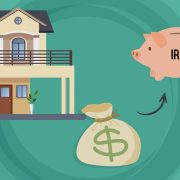What investments can be done with a Self-Directed Real Estate IRA?
The much shorter answer to the question “What investments can be done with a Self-Directed Real Estate IRA?” is almost anything. In addition to actual real estate, you can instead purchase other investment vehicles such as tax liens, mortgage notes or real estate options. These investments allow you to profit from real estate without owning the land.
The IRS does not publish a list of permitted investments, but only the short number of fellow investors or people you may not do business with who are called “disqualified persons.” These forbidden people are yourself, your spouse, parents, children, grandchildren and spouses of your children or grandchildren. However, because IRAs are legally independent entities, you may do business with anyone’s Self-Directed IRA. Also, neither you nor any disqualified persons may benefit from the property in any way. This includes staying there, even for one night. A disqualified person cannot stay on the property even if that person pays rent. You also cannot directly buy from or sell any property to a disqualified person nor employ them for any reason such as maintaining or managing the property. Neither you nor any disqualified person can perform any services on this real estate, even if you do it for free. This labor would be seen as benefitting the Self-Directed IRA through an in-kind transaction, so it is forbidden.
However, certain family members such as siblings, aunts, uncles, and cousins are not considered to be “disqualified persons.” Therefore, they can invest in, purchase, use, or work on the property held by your Self-Directed Real Estate IRA without any restrictions.
All income from the property or expenses to improve and maintain it must also be paid by the Self-Directed IRA, not from your personal funds. Legally, you never see any of this money, as it all remains within the Self-Directed IRA. Although you may not do any business with a disqualified person, your Self-Directed Real Estate IRA can “partner” with them when investing in it. The purpose of partnering is to increase the amount of capital which the Self-Directed IRA has access to. However, when partnering all funds must be kept separate from each partner when buying, selling or using the property in any way. This prohibition also extends to changing the percentage of ownership controlled by any investor, as that is considered a sale or purchase.
Although there are significant tax benefits from using a Self-Directed IRA, there are some taxes which do have to be paid. As they say, nothing is perfect. For example, you may have used financing for the investment in your Self-Directed Real Estate IRA. Such financing is permitted as long as the loans are non-recourse. This type of loan is secured by collateral, such as property. Should you default on the loan, the lender may seize the property, but cannot look to the borrower for any other compensation if the value of security is insufficient to pay the entire loan balance. This protects the rest of your Self-Directed IRA assets from being seized by the lender.
Although you are prohibited from personally benefitting from property held in your Self-Directed Real Estate IRA while you are still of age to deposit into the account, after you retire you can then use the real estate as a home or benefit from it in any way. Also, after you begin making withdrawals from your Self-Directed Real Estate IRA, you can take real estate as an “in kind” distribution instead of cash.
Interested in learning more about Self-Directed IRAs? Contact American IRA, LLC at 866-7500-IRA (472) for a free consultation. Or visit us online at www.AmericanIRA.com.







